My Grandma, Gee Gee, My Bubbie
After returning from the holiday in Asheville, I settled back in Florida for one day, then headed off to St. Louis to spend eight days with my Grandma.
Gee Gee and I spent our days together sitting beside one another in soft chairs in a temporary room she had stayed in for over a month. She was waiting for a new one-bedroom apartment to become available as a permanent home.
Once again in her new space, she would begin working towards gaining confidence living in an environment she could call her own.
For her, gaining confidence in a new environment was no easy feat. This would require her to memorize the floorplan and use muscle memory to get around.
You see, my grandmother is going blind; she cannot hear well, and she has spent nearly 101 years on this earth.
It’s been a good life, but she is ready, she says, for what comes next.
She has macular degeneration, and while she is still able to see colors and vague shapes, details are a thing of the past. She is easily lost, and, as it turns out is a common thing: her mind fills the empty spaces around her with hallucinations.
So you can imagine, for Gee Gee, getting around is quite the challenge.
She is an amazing woman. When I think of words to describe her, I think “matriarch,” “elegant,” “wise,” “dignified.” I think “Jewish,” “Yiddish,” “baker of the most delicious, crispy cookies under the sun,” and most of all— “family.”
I think “Grandma.”
“Bubbie.”
Gee Gee is perhaps the most central figure in my family. She is the dot that lives in the middle of us all.
All things are tied to her. All things spread from her, with love.
Yet her circumstances have made her feel she is a burden to all those who surround her. This is especially the curse for a genuine giver. She is not used to taking, or in this case, needing assistance.
Fortunately, her sense of dignity is still in tact, and precious as gold. For dignity is what she is made of.
She still pushes her credit card on me to make sure she pays for meals. Feeding people has always been a great joy for her. Even after you’ve had more than enough, she’ll say, “don’t be bashful,” in hopes you’ll have a little bit more.
The truth is, she is as valuable of a person as she has always been.
Without her, so many stories of who we are as a family will be lost. She has brought so many of my relatives together, so many times—in joy.
She is an entertainer, a connector, one who throws a dinner party like no other. She is the sheer embodiment of togetherness.
In truth, I cannot pay her back for all she has given me. The many weekends spent at Gee Gee’s house. So many life lessons. Financial help for education. Other things—too many things.
My week with her only served as a small portion of my wish to give back, through my caring for her, which mainly took the form of a few walks a day up and down the hallway, meals together, a lot of conversation, massaging her shoulders, holding her hand, and asking her questions about what her new life looks like.
I asked her about her hallucinations. The whole time she remained aware these were only realities inside her own mind. I asked her to describe them.
She said they took on the shape of buildings, basements and stairwells in one level rooms, hills where there are none, flashing lights, and sometimes animals and people that aren’t there moving around in different ways, shadow figures, dancers in a ballroom.
Life has gotten scary for her lately. Also torturously boring. She is left inside an emptiness in the hours when she is alone.
As I was with her, every couple hours I’d remind her what time it was. I announced what was on Turner Classic Movies, who the actors were, what they were doing. If the film was a good one.
If I texted a message to my sister, wife, or parents, I told her who I was sending the message to and what was being said. I always used the term message, not text, so she could understand.
I wanted nothing more than to be her lifeline, her focus, even her entertainment. I told bad jokes. I read her my favorite poem.
On our walks, she announced to me when we were in front of the elevator, when we were at the lobby, when she could see slightly better in certain shades of light, when we were at the end of the hallway and it was time to turn around.
She somehow knew when I didn’t have on long sleeves; she’d tell me to go get a jacket. I’d tell her I live in Florida and it feels good to be in the cold again.
Each day we discussed what day of the week it was.
There was a time she knew better than us. It was Tuesday and we thought it was Wednesday. She knew; we didn’t.
I say us because my sister came to relieve me when I needed to return home. We had a short overlap where we were together with Gee Gee for a few days—precious time again, like when we were little and at her house on the weekends.
But we were adults this time. And we were caring for her. And yet she was still caring for us—she just didn’t know it. Her love never stops.
Together, we reflected back on the days when Gee Gee baked hundreds of pounds of crispy cookies and sent them out to family members and close friends, to the mishpoka, across the country for the holiday.
It did not matter if you were Jewish, or Christian, or whatever. It was December, and you needed cookies.
Yes, hundreds of pounds of them were mailed out. Over 300 pounds one year.
Chocolate chip cookies were her Trademark—crispy. Always crispy. They made people happy.
Every cookie she ever made, it crunched and crumbled in your mouth. She was also renowned for her strudel, which she made to go alongside our wedding cake when my wife and I were married.
Now that my sister and I are back in Florida, we speak with Gee Gee on the phone when she is with her nightly caregiver—a wonderful woman named Audrey.
We offer her what love and support we can from afar. She tells us about her day. How she is doing in her new apartment. We are happy to hear the lighting is better there.
She still has my uncle and her niece, and other family, who are massively attentive to her life and her needs, who love her and live in St. Louis, not far away.
She is loved, there is no doubt. And there is comfort in knowing she feels such love emanating from our hearts to hers.
We send it to her from the outside: back towards the dot in the middle.
She knows better than any of us that love does not end. She told me so herself while I was there beside her.
She still manages to write it on birthday cards as my uncle helps her put them together and send them off in the mail.
He places the pen in her hand.
And she writes it out—
“I love you forever.”
Old Photos
Gee Gee cannot see, but we can see her, and we can share memories of her with each other.
While in St. Louis, my sister and I went through hundreds of old photographs, bringing some home with us when we left. These are some of my favorites:
The Yiddish Language
I’ve discovered, even though I only know a couple handfuls of words, the Yiddish language is dear to my heart.
I didn’t realize how important it was until my Grandma’s niece (my mom’s cousin) referred to me as a mensch in a text message during my visit.
It was the compliment of compliments.
I’ve said it before, I am not much of a crier. But that word struck a chord in me I didn’t even know I had. It must have laid dormant inside. But when it awoke, it brought tears to my eyes.
I had no idea how much I needed to hear it.
My heart warmed. It made me feel closer to Gee Gee, the rest of the family, and a culture deeper than us all.
So what is Yiddish?
According to myjewishlearning.com:
Literally speaking, Yiddish means “Jewish.” Linguistically, it refers to the language spoken by Ashkenazi Jews — Jews from Central and Eastern Europe, and their descendants. Though its basic vocabulary and grammar are derived from medieval West German, Yiddish integrates many languages including German, Hebrew, Aramaic and various Slavic and Romance languages.
Here are 3 quick, fun ways to get familiar with the Yiddish language
1️⃣⬇️
Watch 40 Yiddish words and expressions you should know by Tamar Meisels—
2️⃣⬇️
Listen to Klezmer musician Daniel Kahn perform Leonard Cohen’s Hallelujah in Yiddish—
3️⃣⬇️
Did you know you can learn Yiddish for free on Duolingo?
Interested? Click here to go to shul.
Weekly Word
Mishpocha—
No need for a dictionary. This one was defined by one of my relatives while i was in town:
Referring to the family network/ gang, as a whole, sometimes super important friends of the family are recognized, but frequently is used when including the in-law family/ by-marriage family.
In case you wish to dive in a little deeper, Dictionary.com included mishpoka as a word of the day back in August of 2021.
Thank you all for reading. We all have our own mishpoka, traditions, stories, and loved ones. Hold them dear. Share them with others. Keep them alive.
It’s so important, how love never ends.


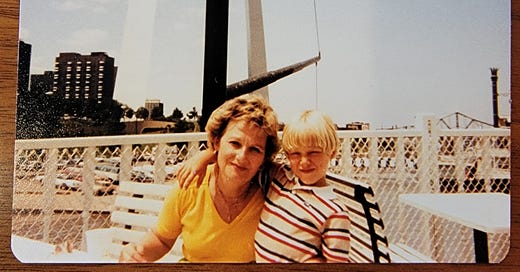



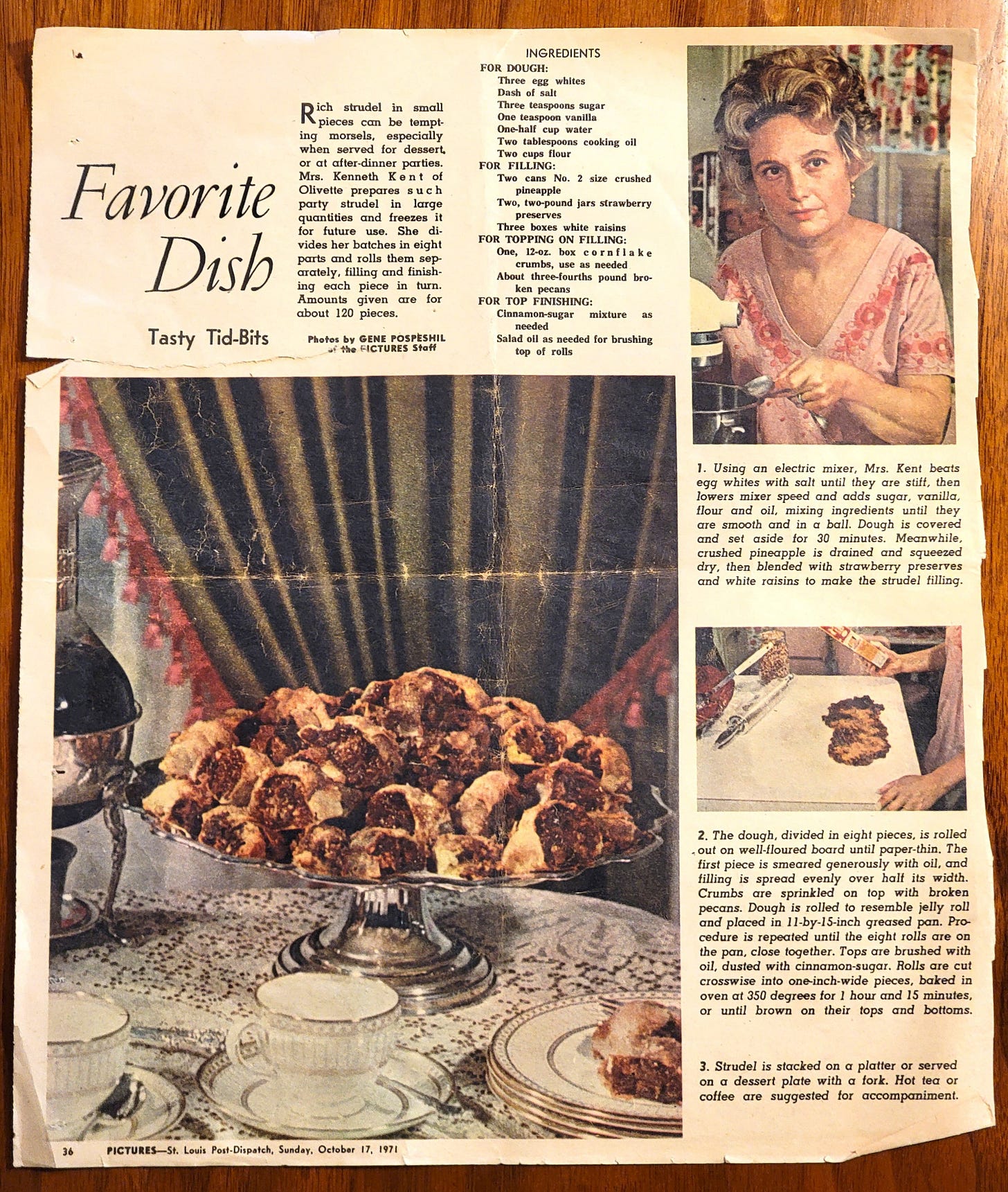
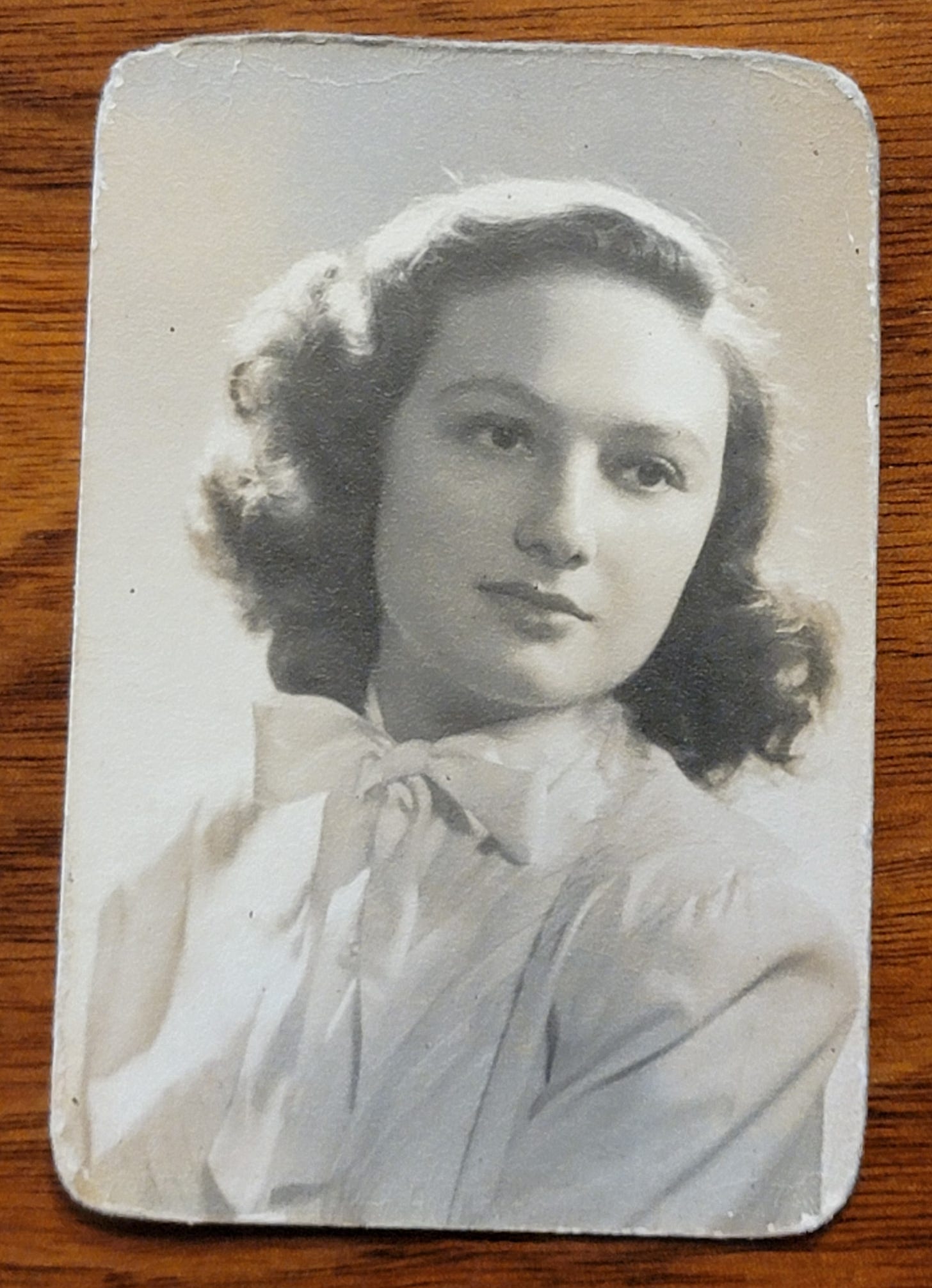
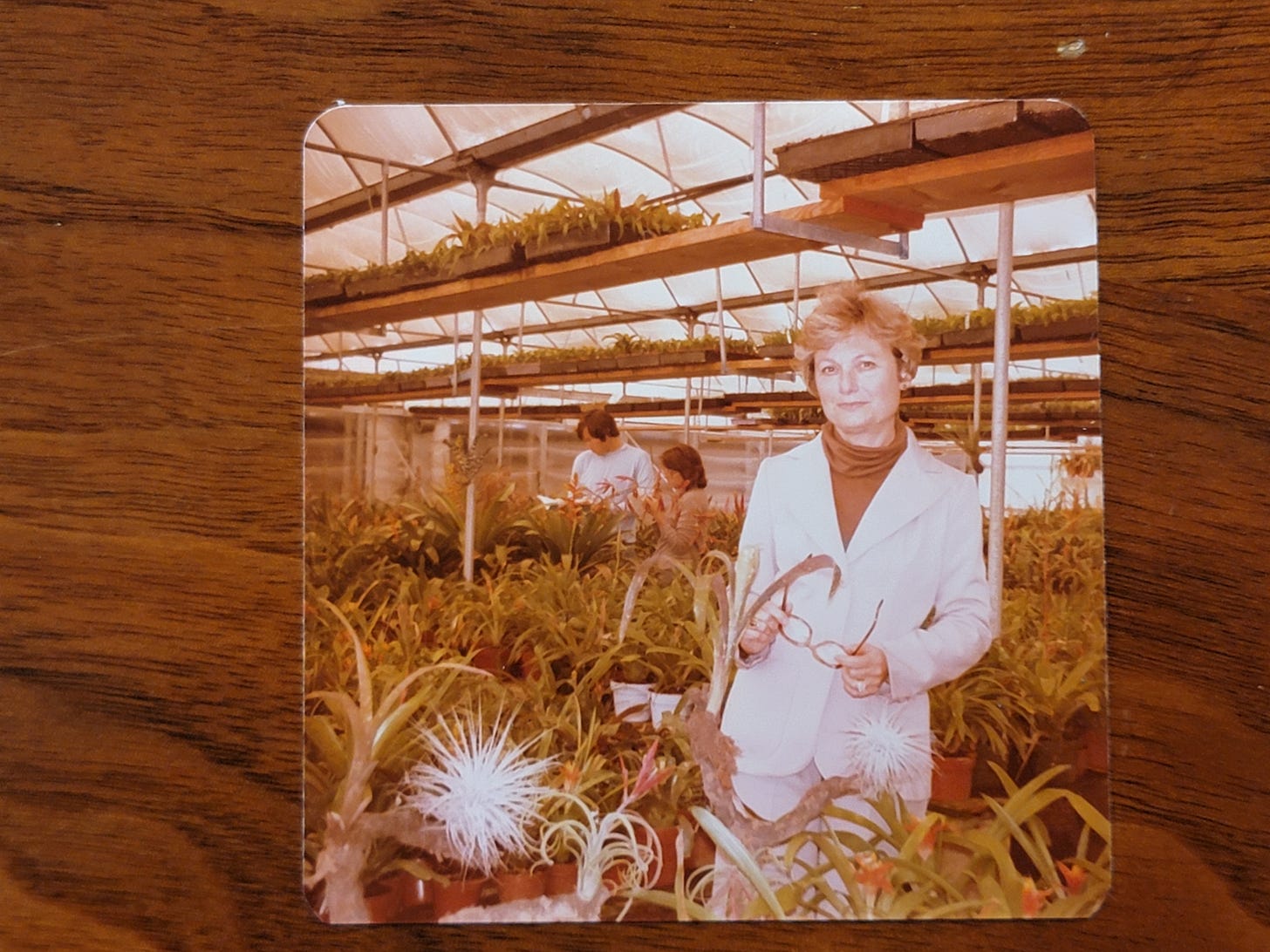
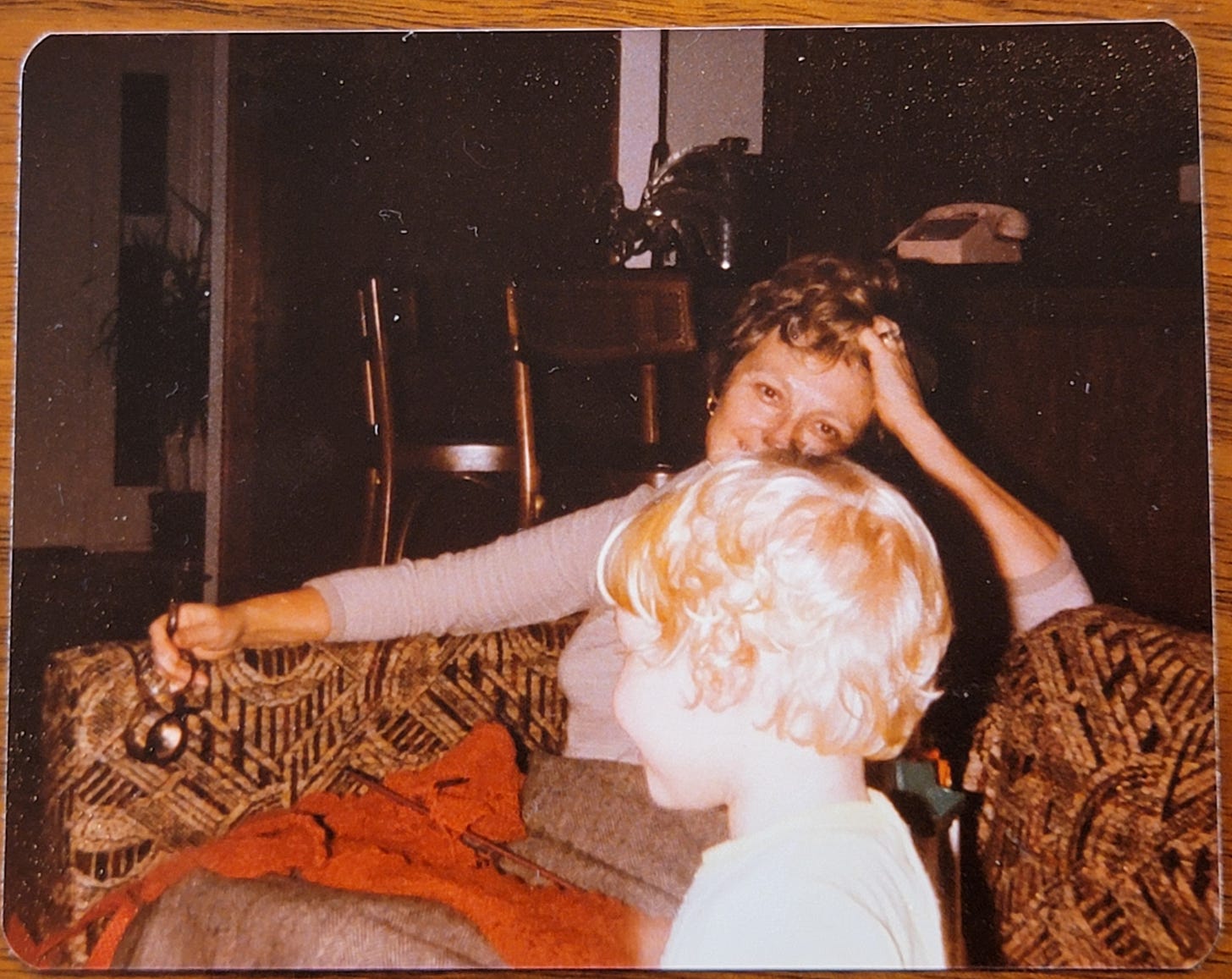
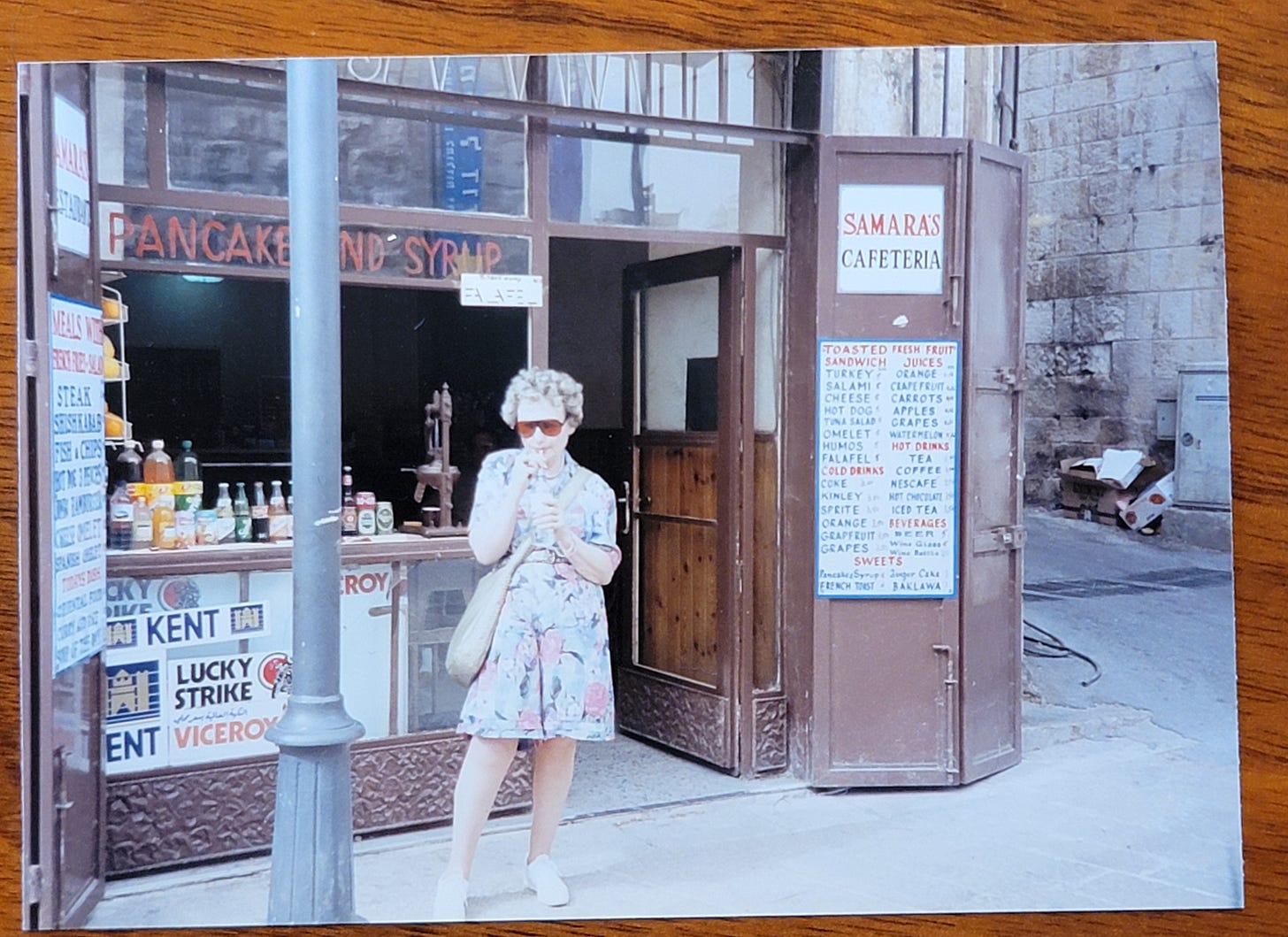
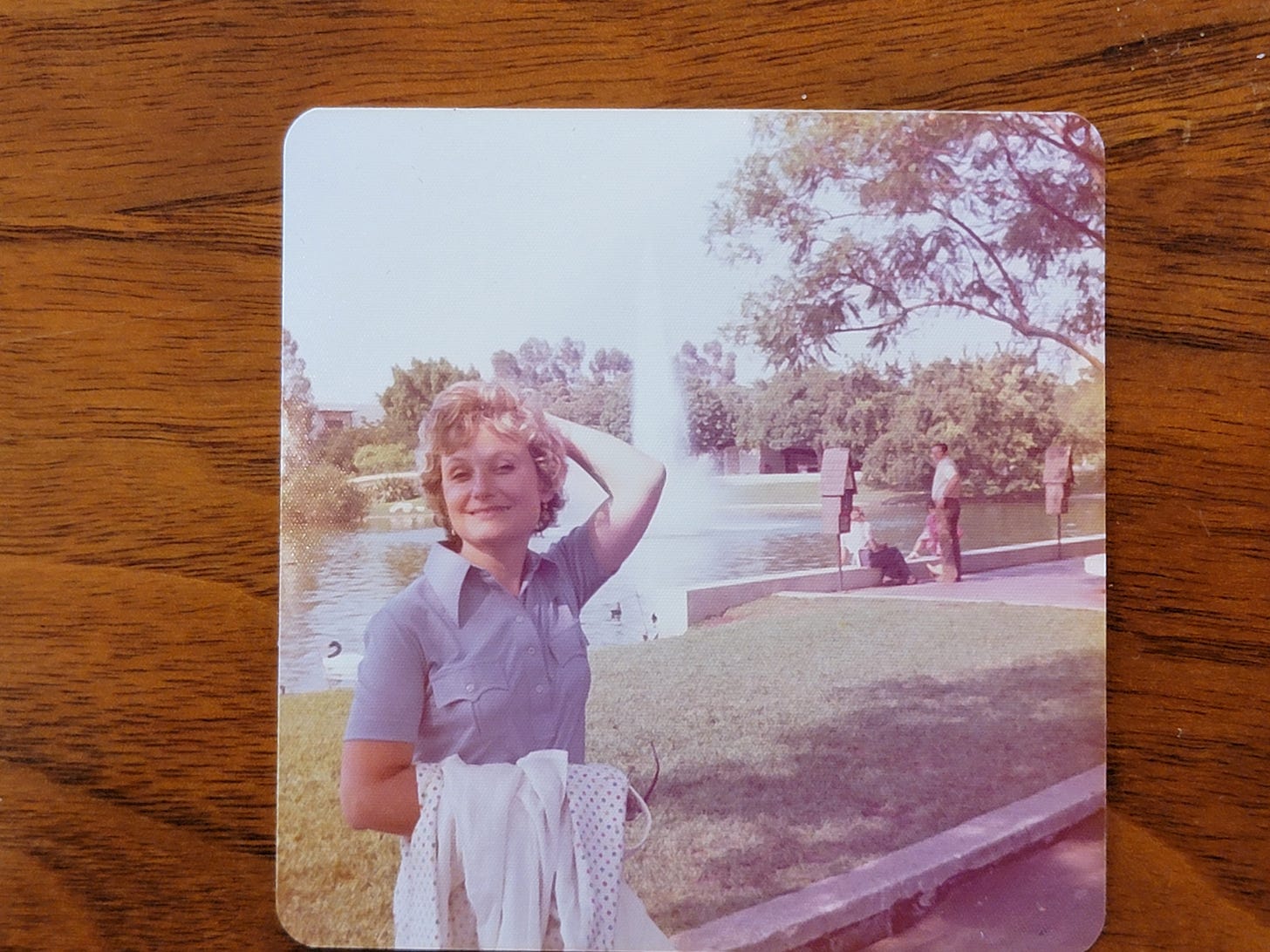
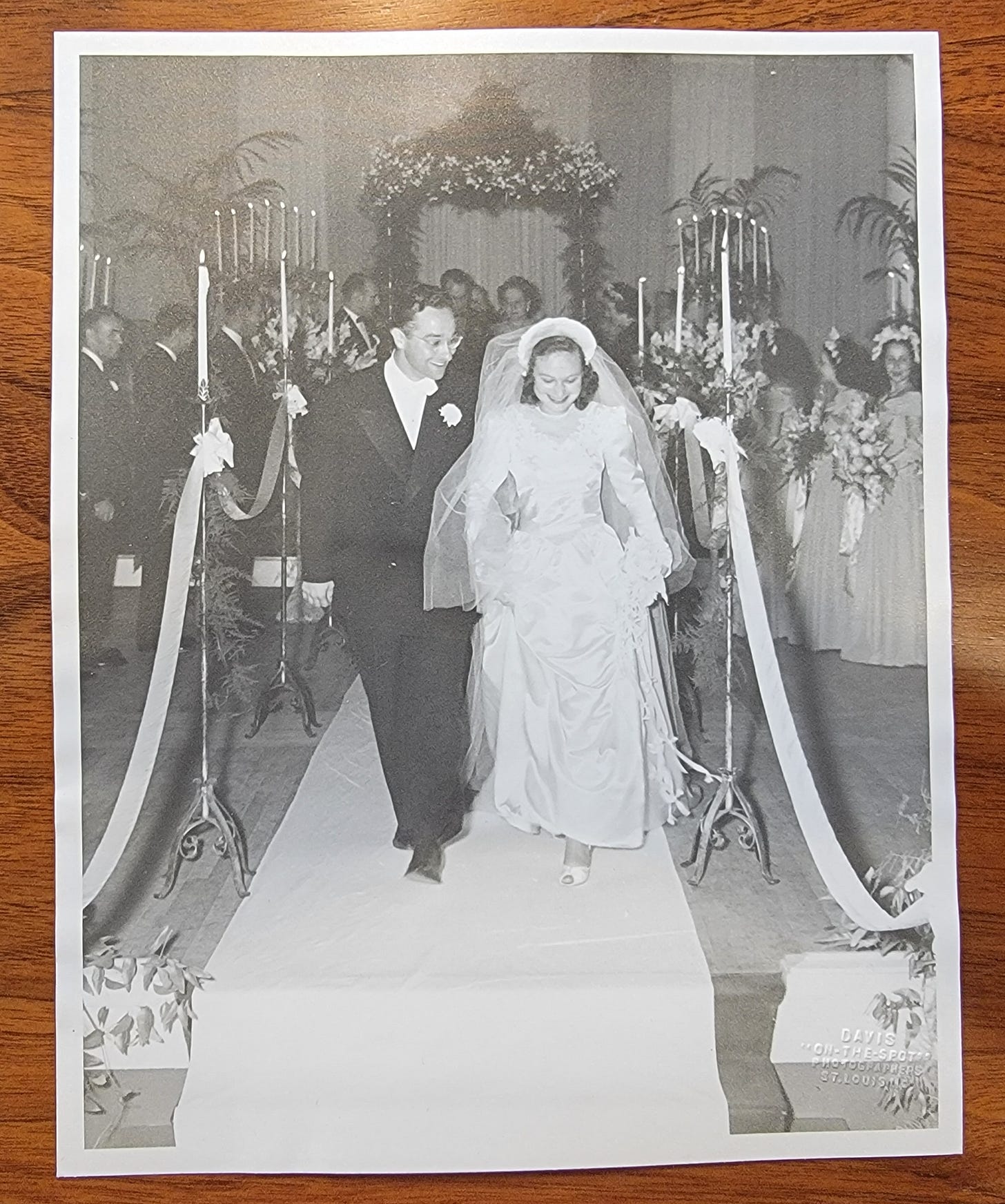
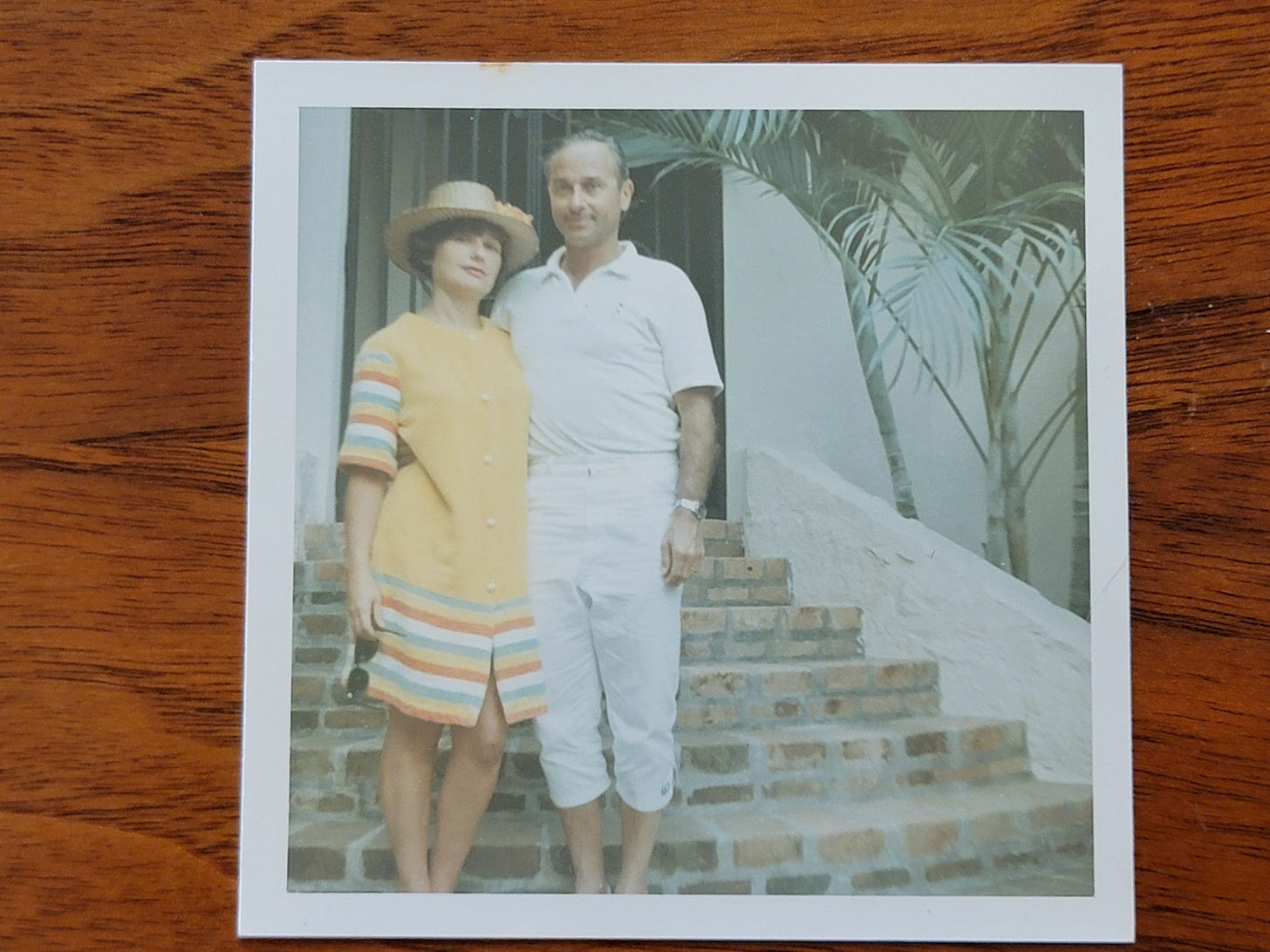
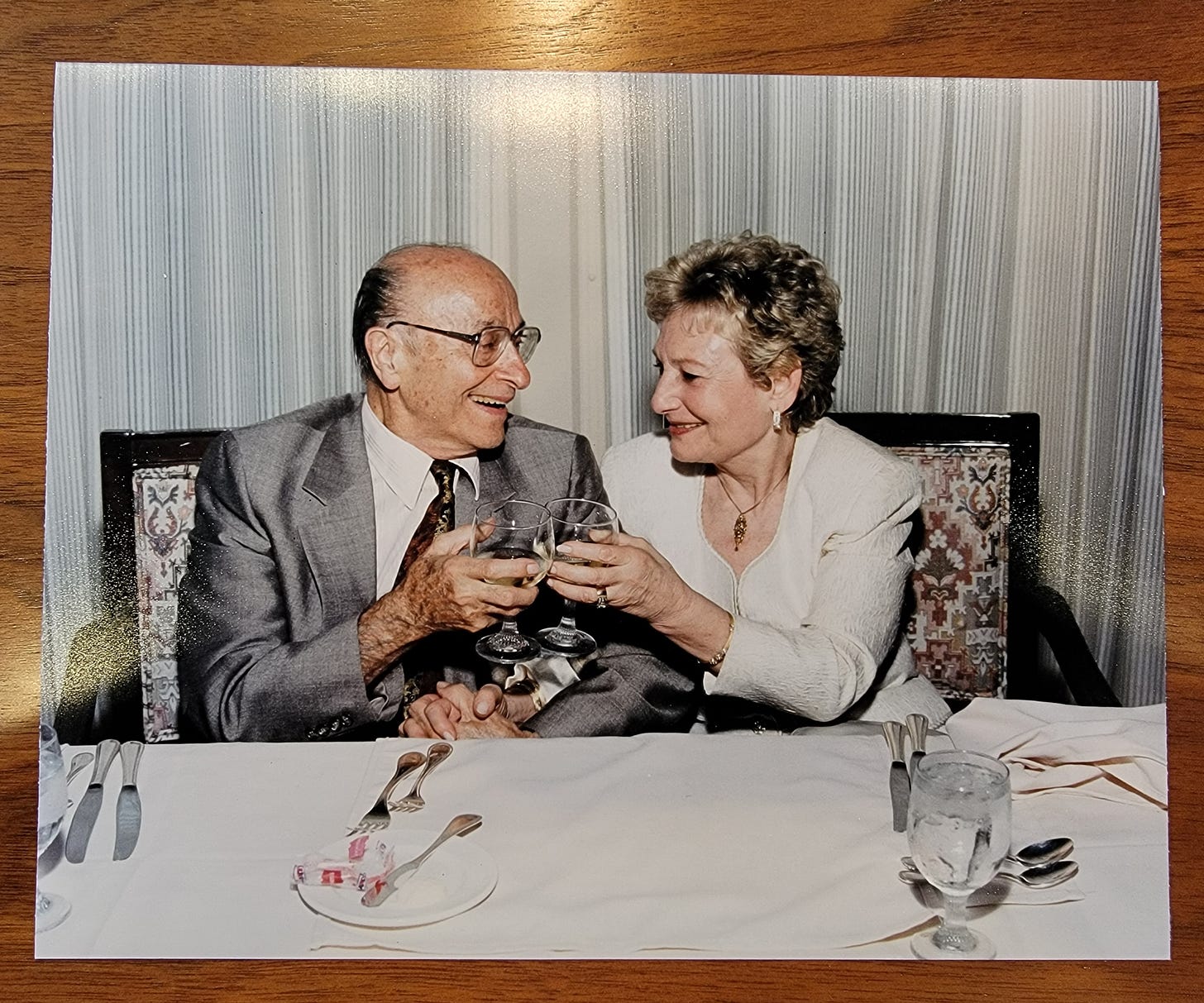
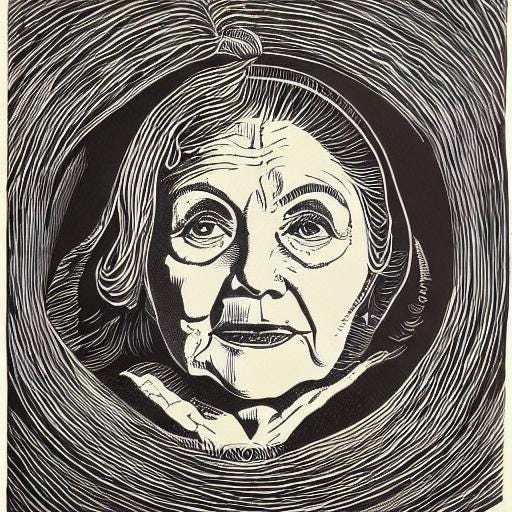
Did you read this to your grandma?
It's wonderful the details that you share.
The kind of details that show, don't tell.
300 pounds of cookies in December tells me 300 things about your grandma.
I also liked that you drew us into the narration that you were doing for her to make it easier for her during your time together.
It is what got me curious about whether you read this to her.
Wonderful reminiscences. We only live on in the memories and stories of those who come after us. Gee Gee did you - and herself - a solid by being a wonderful woman whose story you cannot stop telling. It is a tremendous reminder of strength as we enter one more period in history when the heathens want to wipe us out.